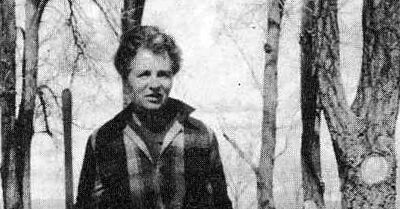When John S. Collins set out across the Plains in 1864, he never expected a narrow escape from a Nebraska prairie fire along the way. Collins, who traveled with an emigrant train that outfitted in Council Bluffs, later wrote an account of his first overland journey in a book titled Across the Plains in ’64: incidents of early days west of the Missouri River-two thousand miles in an open boat from Fort Benton to Omaha-reminiscences of the pioneer period of Galena, General Grant’s old home. Published in 1904 in Omaha, it was based on a diary kept during the 1864 trip.
Collins’s account of the prairie fire: “April 15th [1864] we started at daylight and discovered a dense smoke to the north. It was a prairie fire ten miles away. The captain ordered [a] halt, and calling all hands around him, he said: ‘If the wind changes and that fire comes this way, we must work fast or we are ‘goners.’ Half an hour brought us to a marsh and a small lake. We made camp between them. It was lively work, corralling the wagons ‘close up,’ and chaining them together. The stock was driven inside, and the entrance was closed and securely chained.
“Every man took a bucket and a grain sack, and under the orders of Captain Prowse began ‘back firing,’ by dropping a lighted match in the dry grass and putting out the fire before it got beyond control, and then beginning in a new place, repeating the operation over and over again, with a bucket of water always near by to keep the bag wet. In an hour’s time several acres were burned over, all around us. . . . It was fast and strenuous work and was finished none too soon to avoid a most serious disaster.
“Soon the wind changed as the captain predicted. The blaze was in sight, coming toward us with the speed of a race horse. It was a line of fire a mile long, coming like a great wave, at times leaping fifty feet in the air. The roar, hissing and cracking of the flames could be heard a mile away. Deer, rabbits and prairie dogs swept through our camp in great fright. The sight was grand and awful.
“When the flame reached the head of the lake north of us, a quarter of a mile away, we could feel the heat. It was almost stifling. At this point, the fire stopped. We had ‘back fired’ a quarter of a mile along its edge. Fearing that when the tall grass in the marsh was reached the falling embers would set fire to our wagon covers, McNear fired the marsh before the main flame reached it. During the excitement the stock bellowed and brayed like wild beasts. Soon the two waves of fire met, and the smoke was so blinding that we were compelled to throw ourselves flat on the ground until it passed over. When the fire had passed and gone around us, the men were called together to ascertain if everybody was accounted for. All stood alongside their wagons and answered to their names.”
Collins and his fellow travelers, thankful for their narrow escape, soon afterward resumed their journey through the charred landscape.



